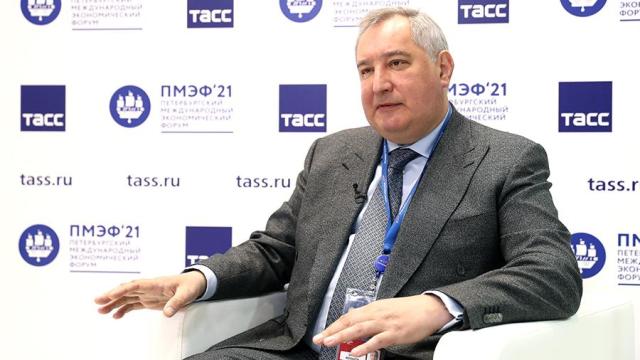The head of Roscosmos, Dmitry Rogozin, said on Thursday, June 3, that the preliminary design of a promising Russian orbital service station (ROSS) will begin in Russia before the end of the summer.
Rogozin said that in the near future, a report with a roadmap for the creation of the ROSS will be sent to the Cabinet of Ministers.
The head of Roscosmos also noted that the main experiments will be conducted not inside the station, but on the outer board.
"In other words, the station is, in fact, a platform for spacecraft, and we are going to cover the station for observation and retransmission," he said in an interview with TASS on the sidelines of the St. Petersburg International Economic Forum (SPIEF — 2021).
Rogozin said that the inclination of ROSS will be 97-98 degrees. The station will pass through the entire Earth every two days, while in the Arctic region it will be located every hour and a half. According to him, it is important to support the Northern Sea Route.
"That is, there is a much greater pragmatism of this station, we would like to create such a station, "the head of Roscosmos added.
Earlier, on April 18, Russian Deputy Prime Minister Yuri Borisov announced Moscow's plans to withdraw from the International Space Station (ISS) project from 2025 and start creating its own orbital station.
The next day, the Deputy Prime Minister warned that the deterioration of the ISS could have serious consequences, including a catastrophe. According to him, Russia is able to independently finance the ROSS project, but is ready to invite foreign partners to cooperate.
On April 20, Rogozin noted that the launch of the first base module for the new Russian space station should be provided in 2025. A day later, he announced that the Science and Energy module (NEM), which was created for the ISS, will be redesigned for use on ROSS.
At the same time, on June 2, Russian cosmonauts Oleg Novitsky and Pyotr Dubov, who are on the ISS, completed their work in outer space. It was noted that the astronauts replaced the replaceable panel of the liquid flow regulator on the Zarya module, and the Mission Control Center (MCC) confirmed its operability. They also prepared the Pirs module for separation from the ISS.

